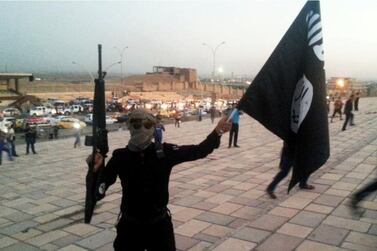John Walker Lindh, the American captured in 2001 fighting for the Taliban, was released early from federal prison on Thursday despite some US politicians expressing fear that he remains a security risk.
His lawyer confirmed his release to The Washington Post.
Mr Lindh, 20 years old at the time of his capture in Afghanistan, will leave federal prison on probation after serving 17 years of a 20-year sentence, according to a prison official.
Now 38, Mr Lindh was among dozens of prisoners set to be released over the next few years after being captured in Iraq and Afghanistan by US forces and convicted of terrorism-related crimes following the Sept 11, 2001 attacks.
Elected officials questioned the reasons behind Mr Lindh's early release, and if the parole officers were trained to spot radicalisation and recidivism among former militants.
Leaked US government documents published by Foreign Policy magazine show the federal government as recently as 2016 described Mr Lindh as holding "extremist views".
"What is the current interagency policy, strategy and process for ensuring that terrorist/extremist offenders successfully reintegrate into society?" asked US Senators Richard Shelby and Margaret Hassan in a letter to the Federal Bureau of Prisons.
Mr Lindh's parents Marilyn Walker and Frank Lindh did not immediately respond to requests for comment. Bill Cummings, Mr Lindh's lawyer, declined to comment.
Melissa Kimberley, a spokeswoman for the Terre Haute prison in Indiana, could not confirm details of Mr Lindh's release other than it would be on Thursday.
The American converted from Catholicism to Islam as a teenager. At Mr Lindh's 2002 sentencing he said he traveled to Yemen to learn Arabic and then to Pakistan to study Islam. He said he volunteered as a Taliban soldier to help fellow Muslims in their struggle but had no intention "to fight against America".
Mr Lindh told the court he condemned "terrorism on every level" and attacks by Al Qaeda leader Osama bin Laden were "completely against Islam".
But a January 2017 report by the US government's National Counterterrorism Center, published by Foreign Policy, said that as of May 2016, Mr Lindh "continued to advocate for global jihad and to write and translate violent extremist texts".
NBC said Mr Lindh wrote a letter to its Los Angeles station KNBC in 2015 expressing support for ISIS, saying the radical Islamist group was fulfilling "a religious obligation to establish a caliphate through armed struggle".







